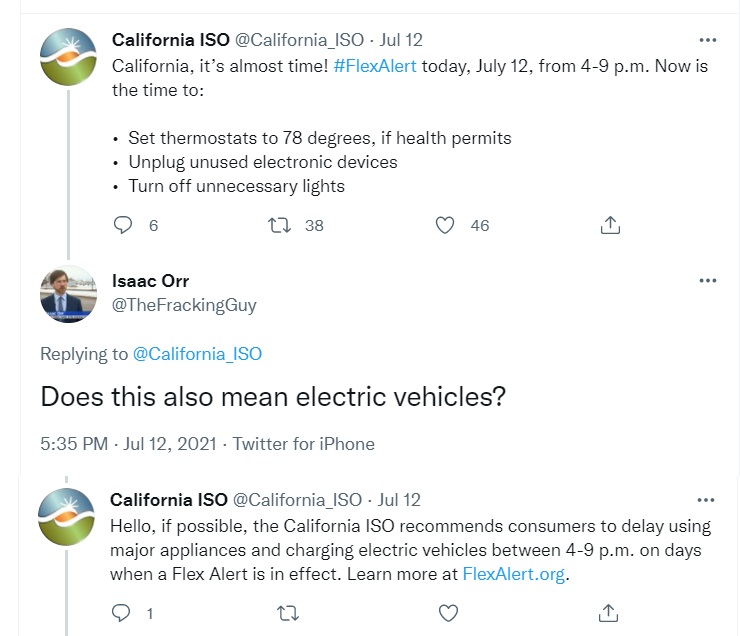GOP Gubernatorial Candidate Dr. Scott Jensen releases his energy plan, and it’s pretty darn good.
Yesterday, Dr. Scott Jensen, the Republican candidate for Governor, released his plan to “Unleash Minnesota Energy,” and there is a lot to like among the policies listed in this proposal.
The main pillars of Jensen’s energy policies are legalizing the construction of new nuclear power plants, repealing the California car mandates for electric vehicles, which unelected bureaucrats in the Walz administration unilaterally imposed on Minnesota, and maintaining the reliability of our electric grid.
Each of these proposals is exactly what we should be focusing on for the future of energy in Minnesota.
Legalizing new nuclear
American Experiment has advocated for lifting Minnesota’s unscientific ban on building new nuclear power plants for years. As such, I was happy to see that the Jensen plan has made legalizing new nuclear a top priority because unlike wind or solar, nuclear power is reliable, affordable, and emissions-free.
Jensen’s plan is a sharp contrast to the Walz administration’s stated goals of mandating 100 percent of the state’s electricity come from “carbon-free” resources by 2040.
Importantly, the plan put forward by Governor Walz makes no mention of legalizing the construction of new nuclear power plants, and his proposal would not allow the electricity generated by large hydroelectric dams in Canada (that Minnesotans already buy) to count as “carbon-free.”
As a result, the Walz proposal is effectively a wind, solar, and battery storage mandate. A forthcoming study by Center of the American Experiment has found that the Walz 2040 plan would cost Minnesotans hundreds of billions of dollars between now and 2050 and reduce the reliability of the grid. Look for this study in the coming months.
Repealing California car mandates
American Experiment was a leading opponent of the Walz Administration’s California car mandates in Minnesota, submitting 46 pages of testimony explaining why the bureaucrats at the Minnesota Pollution Control Agency should not be unilaterally imposing these regulations on Minnesota drivers.
Long story short, the California car mandates imposed by Gov. Walz would infringe on the property rights of auto dealers, mandate that auto dealers stock electric vehicles that are not profitable, fail to increase consumer choice, increase costs for consumers, and fail to deliver any measurable environmental benefits.
We also argued that mandating more electric vehicles on the road would jeopardize the reliability of the electric grid reliability by straining its ability to keep up with demand. We already see grid operators in California asking people not to charge their electric vehicles when electricity supplies are short.

Mandating the same policies that are failing California in Minnesota and hoping for different results is an irresponsible plan that will exacerbate the reliability problems that already exist in the Midwest.
Importantly, the MPCA also claims that it has the authority to completely ban the sale of new, non-electric vehicles by 2035, making this issue important today, but even more important as we move toward Minnesota’s energy future.
Repealing the California car mandates will allow Minnesotans who want to purchase an EV to do so, without imposing more additional costs on everyone else or outlawing conventional cars on California’s timeline.
Prioritizing reliability
According to a report by the North American Electric Reliability Corporation (NERC), the regional electric grid that Minnesota belongs to, the Midcontinent Independent Systems Operator (MISO), is at the highest risk of rolling blackouts in the country.
We are in a reliability hole, and the first thing we need to do is stop digging.
The Jensen plan addresses this growing challenge in the paragraph below:
Order a Department of Commerce assessment and determination of the retirement of base load power sources in Minnesota, while consulting and collaborating with power companies. Currently, power plants in Becker, Oak Park Heights and other locations around the state are scheduled to close in this decade, thereby reducing available power, forcing the construction of new and expensive transmission lines and laying off hundreds of workers while devastating those community’s workforces and tax base. Does it make any sense to shutter incumbent power plants when there is a need for electrical power in the state?
American Experiment has long argued that utilizing existing coal assets through the end of their useful lifetime and looking to replace them with new nuclear power plants is the optimal way to ensure grid reliability, keep costs as low as possible for Minnesota families and businesses, and reduce our emissions in the long run.
There’s a lot to like about these common-sense energy policies.